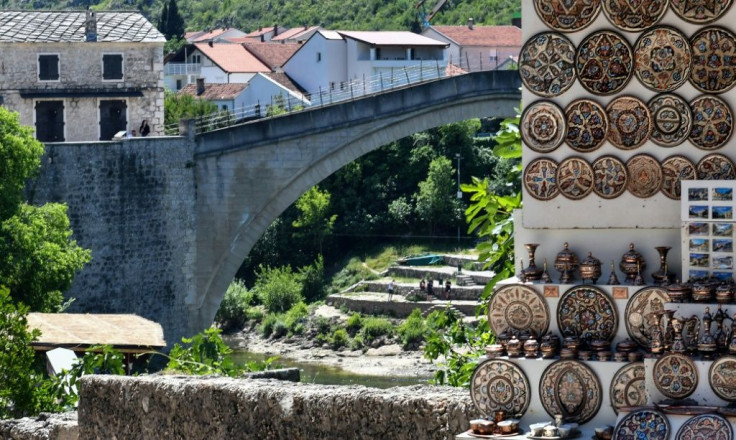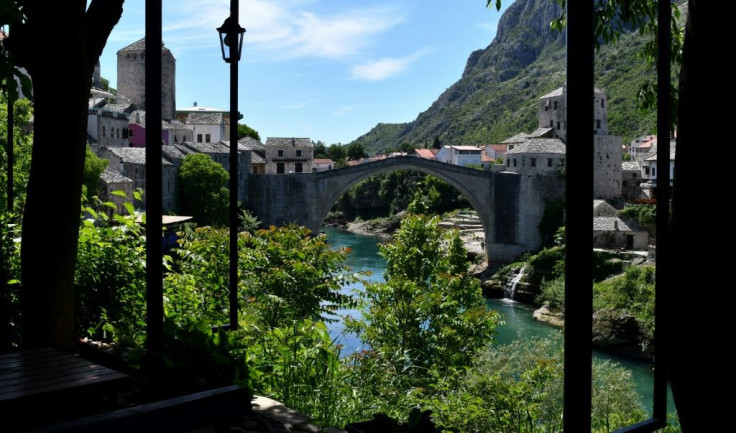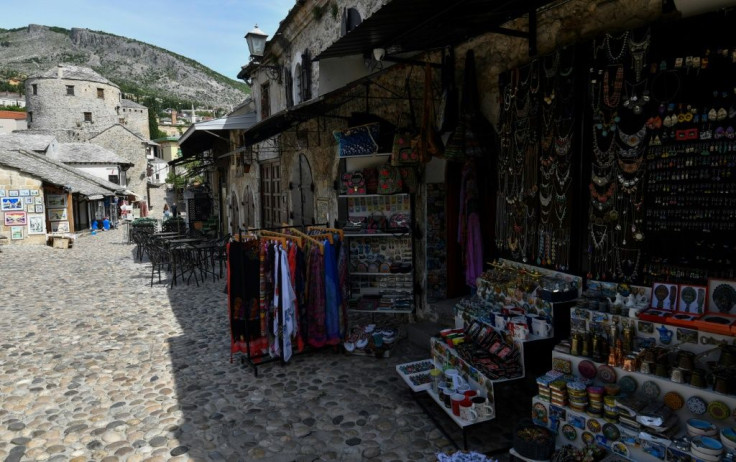Cut Off By Virus, Mostar's Tourism Season Faces Collapse
Without a single tourist clambering across its stone arc, Mostar's majestic bridge would be a picture of tranquility if not for the desperation of Bosnian locals whose tourism season has been wiped out by the coronavirus pandemic.
One of the prized jewels of the Balkans, Mostar welcomed one million visitors last year to its enchanting Old Town, whose two halves are connected by the Ottoman-era bridge that peaks above the emerald Neretva River.
With more than 90 percent of those tourists foreigners, the town is now facing a particularly painful collapse as the pandemic shutters international borders and severely curbs air travel, sending the global tourism industry into a tailspin.
A few months ago, the Almira hotel, which sits just across from the iconic bridge, was already fully booked for the season thanks to tour groups of between 30 and 50 people who reserved spots each night.

Today however, all that has changed.
"Cancellation, cancellation, cancellation", said the 61-year-old owner, Almira Grcic, looking at her computer screen in the hotel's reception.
Behind her, the keys to the hotel's 21 rooms are stored in their lockers on a shelf.

Bosnia has so far been spared the worst of COVID-19, which has claimed around 100 lives in this country of 3.5 million.
But the economic effect is already being heavily felt in travel destinations such as Mostar, a UNESCO heritage site whose population of 100,000 is sustained by its tourism profits.
The dearth of visitors is a sharp reversal from a tourism stream that had been growing steadily ever since the town's Old Bridge was repaired in 2004 after it was destroyed during Bosnia's 1990s war.

Today, most of the souvenir shops are padlocked shut while restaurants are closed under lockdown rules.
"Under normal circumstances, customers would wait in front and fight for a table, the streets would be teeming with people," said Haris Kolicic, the 25-year-old manager of the Urban Grill restaurant, whose terrace looks out on the bridge.
"If you really look at it, this season is lost," he said. The best the town could hope for was a pick-up towards the end of the year, he added.
Even when the restrictions are relaxed, the economic "disaster" will continue, said Haris Djonko, the 29-year-old director of Mostar's Bosnaseum, a history museum closed since March.
"The wallets of the visitors who were supposed to come this year are also seriously damaged," he said. "They will have to get back on their own feet economically before travelling."
Locals said that state aid had yet to arrive from a government whose labyrinthian bureaucracy inspires little faith.
"The state doesn't even know what tourism is," said hotel owner Grcic. She had received "no help" so far but was still hoping to get minimum wage payments for her employees, she added.
It seems that only Djenad Bakamovic, a 62-year-old painter, is feeling optimistic.
He recently opened his gallery after two months of confinement.
"I started again, to draw and to please my soul," he told AFP while laying brush strokes on a watercolour painting of the bridge.
"We're here and we're waiting for visitors. We wish them to come and see us in good health."
© Copyright AFP 2024. All rights reserved.





















